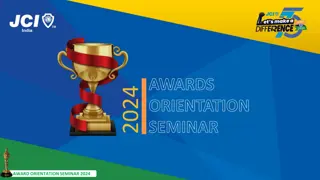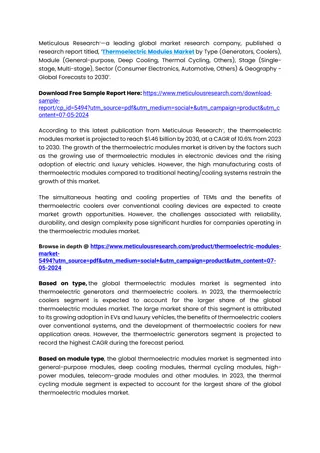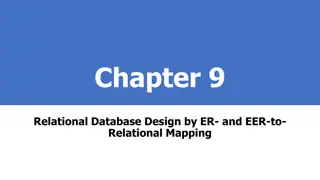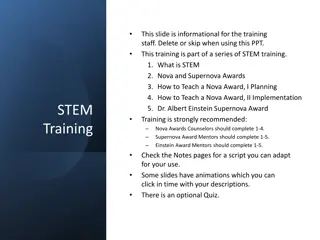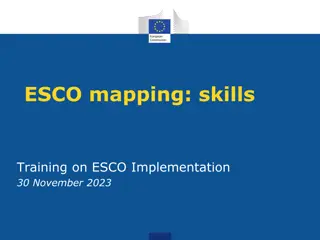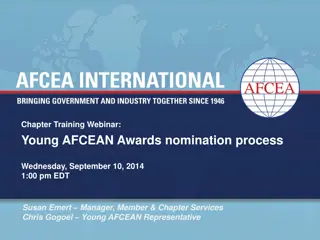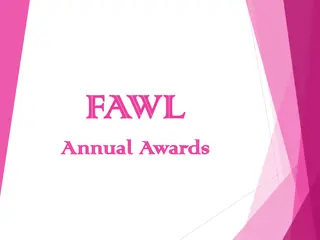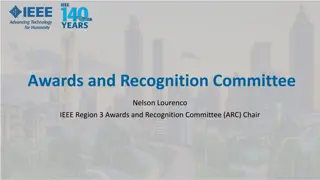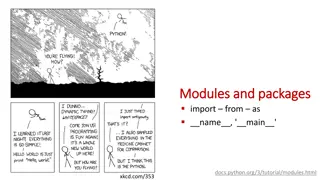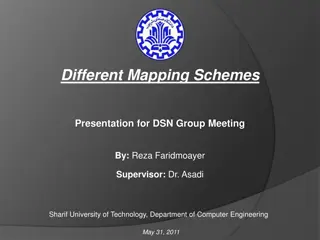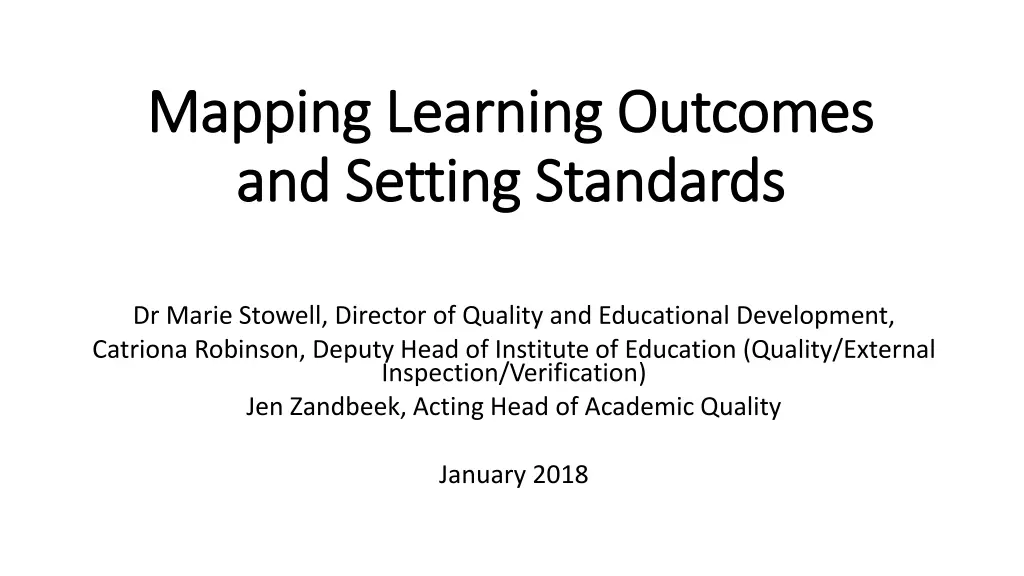
Guide to Mapping Learning Outcomes and Setting Standards in Education
Gain insights into mapping learning outcomes, setting standards, and designing courses in education. Understand the process of aligning course objectives with assessment criteria for effective curriculum development. Explore the role of honours degrees and other awards in educational quality assurance.
Download Presentation

Please find below an Image/Link to download the presentation.
The content on the website is provided AS IS for your information and personal use only. It may not be sold, licensed, or shared on other websites without obtaining consent from the author. If you encounter any issues during the download, it is possible that the publisher has removed the file from their server.
You are allowed to download the files provided on this website for personal or commercial use, subject to the condition that they are used lawfully. All files are the property of their respective owners.
The content on the website is provided AS IS for your information and personal use only. It may not be sold, licensed, or shared on other websites without obtaining consent from the author.
E N D
Presentation Transcript
Mapping Learning Outcomes Mapping Learning Outcomes and Setting Standards and Setting Standards Dr Marie Stowell, Director of Quality and Educational Development, Catriona Robinson, Deputy Head of Institute of Education (Quality/External Inspection/Verification) Jen Zandbeek, Acting Head of Academic Quality January 2018
Mapping Learning Outcomes to Modules and Mapping Learning Outcomes to Modules and Awards: Guidance for course design Awards: Guidance for course design Bloom s Revised Taxonomy Anderson, L. W., & Krathwohl, D. R. (eds.) (2001)
Note: throughout this presentation the focus is on Honours degrees - the principles are the same for other awards but the level is different
Writing learning outcomes: reference points Writing learning outcomes: reference points FHEQ qualification descriptor Subject benchmark statement Characteristics statements (Masters, FDs etc) Professional body requirements UW Curriculum Design policy UW Principles for course design guidance documents Undergraduate courses Foundation degrees Writing learning outcomes and assessment criteria
Writing learning outcomes: process Writing learning outcomes: process What are the distinctive features of the course? What will students have learnt and be able to do if they successfully complete the course? Use active and explicit verbs ensure these are appropriate to the level of the award Recommend 10 16 points for the course learning outcomes Think about how modules and course structure, and learning, teaching and assessment will align with learning outcomes Iterative process? NB: course learning outcomes must be achievable by all students
Course Design Process Course Design Process Biggs model of constructive alignment (2003)
Learning outcomes: curriculum thinking Learning outcomes: curriculum thinking How will you ensure and support progression and develop high level academic skills development, eg critical analysis + evaluation skills? How will you stretch and challenge students and personalise learning? How will you maximise the chances of graduates entering highly skilled employment? What transferable and discipline related skills will you develop in students? NB: digital capabilities Do the learning outcomes reflect the course USP?
Mapping learning outcomes to modules Mapping learning outcomes to modules Focus on the level 6 and level 5 modules only Consider in which modules (at level 5/6) the learning outcome will be primarily assessed. If it is via all modules or all optional modules or all mandatory modules state this BUT if you use this a lot, perhaps the outcomes are too generic Normally only one or two modules should be mapped to individual learning outcomes Ideally this is a process of curriculum design and planning to align the modules, learning, teaching and assessment with the learning outcomes
Non Non- -Honours and Honours exit award Honours and Honours exit award NB: Non-Honours award is no longer any 60 credits at level 6 must have met learning outcomes and taken modules that justify award title Learning outcomes for non-Honours will normally not include reference to independent study/project work and associated module Normally students exiting with a non-Honours degree will be expected to have passed at least 60 credits of the mandatory modules (excluding the independent study or project module) at level 6 In all cases the modules passed must justify the award title Please seek advice if you are not sure how to express this (section 20)
Cert HE and DipHE: Standard text Cert HE and DipHE: Standard text Learning Outcomes: Diploma in Higher Education [insert name of exit award] In order to be eligible for the exit award of Diploma in Higher Education in the named subject/area of study, a student must have passed at least 240 credits in total including the mandatory modules for level 4 and level 5 of the award as specified on the award map. Learning Outcomes: Certificate in Higher Education [insert name of exit award] In order to be eligible for the exit award of Certificate in Higher Education in the named subject/area of study, a student must have passed at least 120 credits in total including the mandatory modules for level 4 of the award as specified on the award map.
Integrated Masters Integrated Masters IM purpose: to provide opportunity for students to continue their studies at UW and gain a Masters qualification Preferred model: BA/BSc/IM ie a level 7 year added to an existing BA/BSc and therefore: o Normally set out as part of a single BSc/BA/IM Programme Specification o Some examples of niche programmes (ie not related to existing undergraduate awards) o Learning outcomes for level 7 set out separately
Joint subject pathways: standard text Joint subject pathways: standard text Learning Outcomes: Joint Pathway Students following a joint pathway will have met the majority of the learning outcomes for the subject, although the range of knowledge and discipline specific understanding in terms of options or specialisms will be more restricted than for a single or major Honours student. Learning Outcomes: Major Pathway Students following a major pathway will have met the learning outcomes for the subject but will have focused their studies in relation to subject options or specialisms. Learning Outcomes: Minor Pathway Students following a minor pathway will have met some of the learning outcomes for the subject (as indicated by the modules studied), and will have focused the development of their knowledge, understanding and subject specific skills in particular aspects of the discipline.


